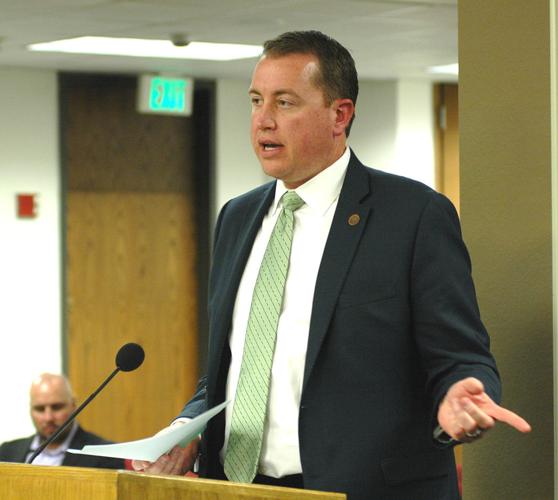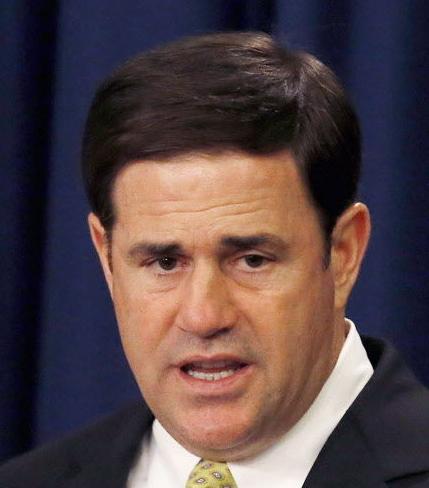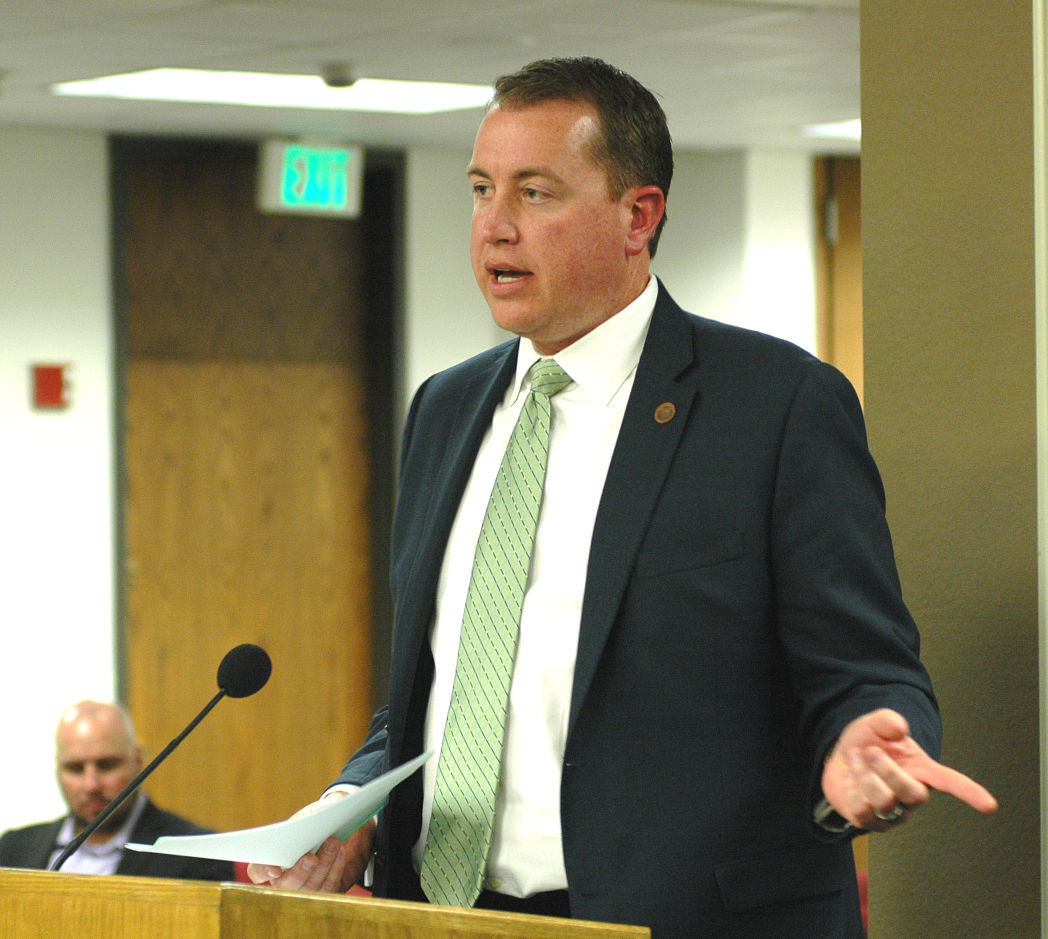PHOENIX — Proponents of a plan to tap state trust funds for education and put new constitutional caps on total school spending said Monday they already have amassed a campaign war chest of $1.75 million.
And virtually all of that has come from big donors.
The announcement comes as state Treasurer Jeff DeWit admitted he is struggling to find anyone to fund an opposition campaign.
And he charged that the business interests are “afraid” to take a position against Proposition 123, which is being supported by Gov. Doug Ducey.
But ballot measure spokesman Christian Palmer said the money already in the bank is “a real display of the commitments of the community, education community, the business community, to the idea that we really, really, really need to increase school funding.”
The measure, if approved at a May 17 special election, would provide an additional $3.5 billion to public schools for the coming decade above what they would otherwise get.
More to the point, it would settle a 5-year-old lawsuit filed by schools against the state for failing to obey a voter mandate to boost aid to schools annually to help protect them against inflation.
The school interests who filed that suit concede they may be getting perhaps only about two-thirds of what they contend the state owes.
But they pointed out that the state has appealed a lower court ruling, meaning even if the schools were to win — eventually — it could take years to get the cash.
In a prepared statement, the governor said that $1.75 million shows “overwhelming support” for the measure.
A full disclosure of who has donated so far will not be available until the middle of March. But other documents already on file with the Secretary of State’s Office show that half of the funds raised have come from just five sources.
Leading that list is $250,000 each from Bob and Renee Parsons. He is the founder of GoDaddy, the Arizona-based company best known for website hosting.
Another $150,000 was donated by Greater Phoenix Leadership, an organization of Phoenix-area corporate executives, with $100,000 from the Helios Education Foundation, which is focused on ensuring students are ready for postsecondary education.
The Arizona State University Foundation and the Salt River Project each donated another $75,000.
At least $1.6 million of the money raised can be traced to donations of at least $10,000.
DeWit scoffed at the fundraising success.
“I have yet to find anybody that’s read the whole thing and truly understands it that likes it,” he said.
Among the problem is that, after 2025, the additional funding disappears. And DeWit said there is no guarantee that lawmakers will make additional money available at that time.
Potentially more significant, voter approval of Proposition 123 would amend the Arizona Constitution to say that, beginning in 2026, lawmakers actually could cut state aid to schools if that figure totals half of the state budget.
That’s not an issue now, with state education funding now about 42 percent of the $9.1 billion spending plan. But it could be a factor if legislators slash funding for other programs, like Medicaid, or find ways to take certain expenses out of the general fund budget and put them into other accounts.
That already is occurring to a small degree, with part of the expense for the state Department of Public Safety financed through vehicle license fees and gasoline taxes.
Palmer said there’s a reason for that provision.
“Prop. 123 also includes safeguards that protect the legislators’ ability to come to budgeting decisions that protect the other interests of the state,” he said.
That still leaves the question of whether DeWit can raise some money to oppose the measure.
“I need to see if there’s money there,” he said. “They run things with an iron fist,” DeWit continued, saying the business community “is afraid to take the other side.”
Ducey spokesman Daniel Scarpinato declined to respond to that claim.
On Twitter: @azcapmedia







